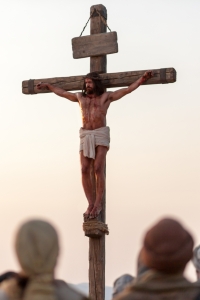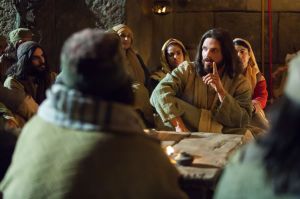I’ve written about the Sacrament on a couple of occasions before. The last time more than 18 months ago, and in it I promised my next posts would be looking at this wonderful ordinance in more detail. Ahem… well, a lot has happened during those 18 months. Sorry for the delay.
And as I sat in my Church meetings today and listened once again to the words of the Sacrament, I felt I needed to continue on from that post so long ago.
For us in the LDS faith, the Sacrament consists of the communal sharing of broken bread and cups of water, and is directly derived from the Last Supper. In other faiths it may be called the Eucharist or Communion. They all share similarities. Thus, although I am focussing my discussion on the LDS sacramental rites, many aspects may hold meaning for other faiths too.
The New Testament account of the Lord’s Last Supper in the Gospel of Matthew is short:
“And as they were eating, Jesus took bread, and blessed it, and brake it, and gave it to the disciples, and said, Take, eat; this is my body. And he took the cup, and gave thanks, and gave it to them, saying, Drink ye all of it; for this is my blood of the New Testament, which is shed for many for the remission of sins.” (Matthew 26:26-28)
We’ll look more closely at these words in a later post. But for the moment it is worth reminding ourselves that this was the last act Jesus took with his chosen Disciples before He went to Gethsemane. It was the culmination of His teachings to them. Continue reading




